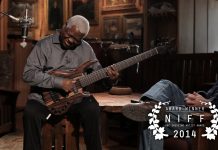Delve into the tumultuous history of China’s revolution and the enigmatic figure at its center, Chairman Mao Zedong, in the gripping documentary “Mao’s Bloody Revolution Revealed.” Hosted by Philip Short, BBC correspondent and author of “Mao: A Life,” this two-part exploration unveils the intricacies of a nation’s transformation and the dark shadows that lurk beneath the surface.
The first half of this documentary provides a comprehensive overview of the Chinese revolution leading up to the Great Proletarian Cultural Revolution, offering viewers a deep dive into the historical context that shaped Mao’s ideology. The second half shifts its focus to the tumultuous Cultural Revolution decade spanning from 1966 to 1976, revealing the heights of upheaval and the profound impact of Mao’s policies. Much of the narrative is dedicated to the period between 1966 and 1969 (or 1971), where the Cultural Revolution reached its zenith, before delving into the later years, culminating in Mao’s death in 1976.
As you embark on this journey, you’ll encounter a spectrum of perspectives on Mao and his era. “Mao’s Bloody Revolution Revealed” does not shy away from challenging the conventional narratives that have painted Mao as a ruthless butcher and propagated sensational stories of unimaginable atrocities. Instead, it seeks to offer a more nuanced understanding, one that transcends the binary narratives of hero or villain.
This documentary aims to provide a balanced account, drawing from both the official revisionist Chinese state’s perspective and traditional Western anti-communist viewpoints. It invites viewers to engage with the complexities of Mao’s legacy, the transformative power of his ideas, and the enduring questions that surround his rule.

































